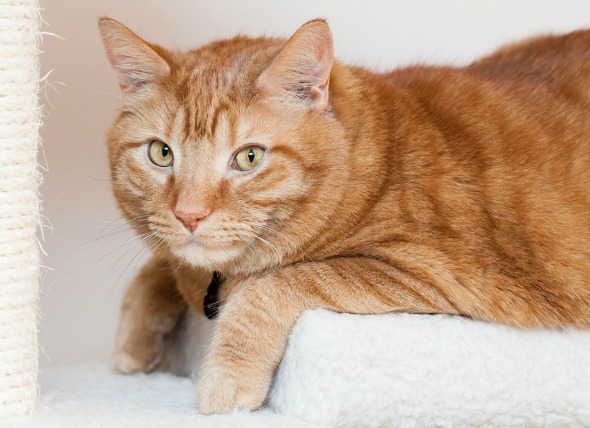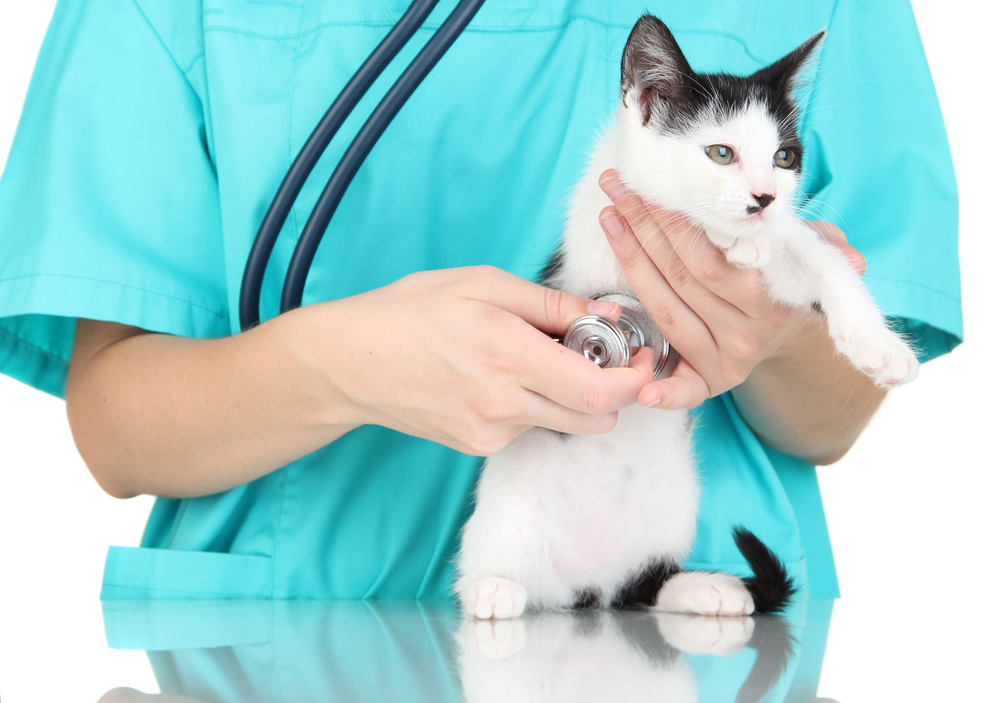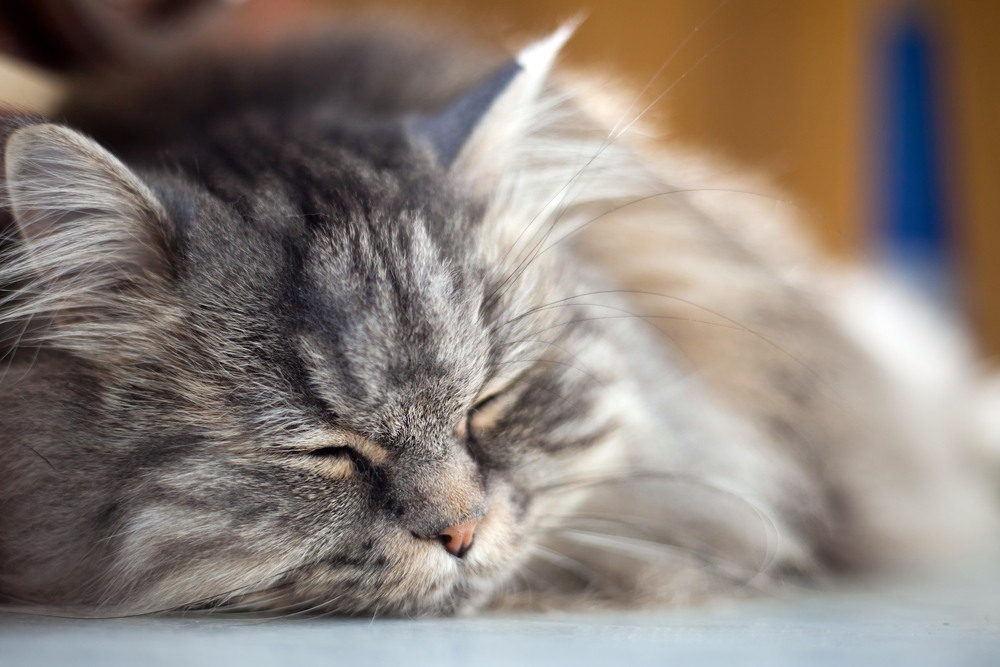

Ascites, also known as abdominal effusion, is the medical term referring to the buildup of fluid in the abdomen. This may cause symptoms such as vomiting, abdominal discomfort, and loss of appetite. A wide variety of causes may be responsible for ascites, thus treatments vary accordingly.
Some of the outward symptoms your cat may show are difficulty breathing (or dyspnea) due to pressure on the chest from abdominal swelling, or from a related buildup of fluid in the space between the chest wall and lungs (referred to as pleural effusion). Male cats will sometimes also show a buildup of fluid in the scrotum or penis.
There are several causes for the occurrence of fluid buildup (or edema) in the abdomen, including abdominal bleeding, abdominal cancer, inflammation of the lining of the abdomen, a ruptured bladder, liver damage, and low levels of protein in the blood (hypoproteinemia). Right-sided congestive heart failure, in which the heart cannot pump enough blood to meet the body’s needs, is one other possible cause, and a medical condition known as nephritic syndrome -- where the cat has protein in its urine and high cholesterol levels in its blood -- may also be responsible for fluid buildup in the abdomen.
Your veterinarian will perform a complete blood profile, including a chemical blood profile, a complete blood count, and a urinalysis. An ascetic fluid evaluation is general procedure for diagnosing ascites. This involves the removal of abdominal fluid to analyze for characteristics such as bacterial presence, protein makeup, and bleeding. Your veterinarian may also perform X-rays and ultrasounds to determine the cause of abdominal fluid buildup.
The cause for the fluid buildup in the abdomen may be the result of liver damage, a ruptured bladder, or right-sided congenital heart failure. Additional symptoms will help to determine further diagnostic procedures.
Treatment is largely dependent on the underlying cause of the ascites. If symptoms are so severe that your cat is suffering, its abdomen may be tapped to remove fluid so that your cat is more comfortable. Corrective surgery may be necessary in some cases; for example, if a tumor is present or to control abdominal bleeding.
Medications are determined according to the underlying cause. For instance, fluid buildup due to bacterial infection (known as septic ascites) will require antibiotic therapy. It is important to note that aggressive treatment with diuretics, which are used to remove excess body fluid, may also cause low levels of potassium in the blood, a condition known as hypokalemia. This has the possibility of worsening symptoms, leading to further complications.
Continue to monitor symptoms and to administer the full course of the medications, if prescribed. Restricting dietary salt will help to control fluid accumulation related to some causes of ascites, such as liver damage, heart failure, and low levels of protein in the blood.
Due to the fact that there are many different causes of ascites, there is no one all-encompassing prevention method that can be recommended. To avoid abdominal fluid buildup due to trauma, keep your cat in confined locations, or on a leash, to prevent access to roads and other dangerous areas where injuries may occur.
 Parasitic Infection of the Respiratory Tract in Cats
Respiratory Parasites in Cats
Respiratory parasit
Parasitic Infection of the Respiratory Tract in Cats
Respiratory Parasites in Cats
Respiratory parasit
 Teeth Misalignment in Cats
Malocclusion of Teeth in Cats
Normally, a kitten
Teeth Misalignment in Cats
Malocclusion of Teeth in Cats
Normally, a kitten
 Why Do Cats Spray After Being Neutered?
Why Do Cats Spray After Being Neutered?
Why Do Cats Spray After Being Neutered?
Why Do Cats Spray After Being Neutered?
 Hookworms in Cats
Ancylostomiasis in Cats
Ancylostoma hookworms are
Hookworms in Cats
Ancylostomiasis in Cats
Ancylostoma hookworms are
 Brain Injury in Cats
There are a variety of things that can cause brai
Brain Injury in Cats
There are a variety of things that can cause brai
Copyright © 2005-2016 Pet Information All Rights Reserved
Contact us: www162date@outlook.com